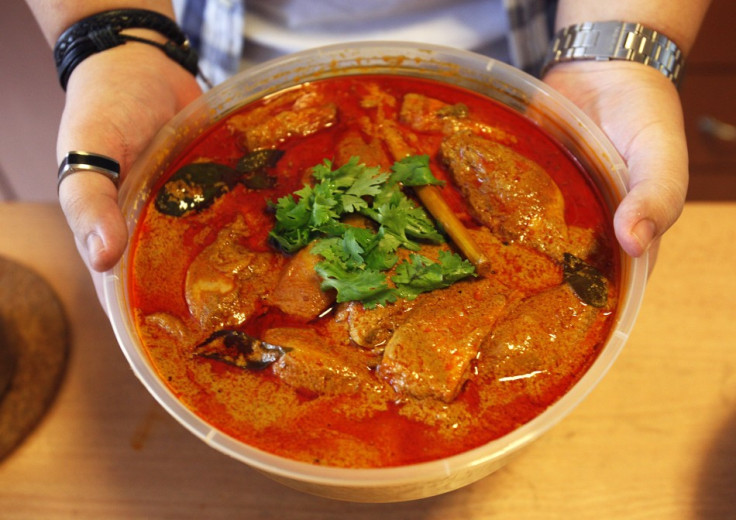Curry House Founder Sake Dean Mahomed 'Deserves Blue Plaque'

Moves are afoot to honour the man who brought the curry house to Britain with a special blue plaque.
Campaigners want to recognise Sake Dean Mahomed for his important cultural contribution to the nation's dinner tables.
Curry is today widely recognised as the UK's most popular dish, even beating traditional favourites such as fish and chips.
The dish's journey to Britons' hearts - and stomachs - began in 1810 when Mahomed opened Britain's very first curry house in Portman Square, London.
It was called the Hindoostanee Coffee House and every curry house in the country today owes a small debt to the pioneer who came to Britain from Bengal.
Some delights on offer to 19<sup>th century diners at the Hindoostanee are no longer features in today's Indian restaurants. Customers could enjoy a hookah pipe to smoke tobacco from Pakistan, along side curries which were "in the highest perfection... unequalled to any curries ever made in England" - according to a contemporary newspaper advert.
Unfortunately, things did not end well for the Hindoostanee, which shut down amid financial difficulties in 1833. However the exotic dish won several high-profile devotees, including Queen Victoria who had native cooks prepare Indian foods daily.
Unsurprisingly, the push for a blue plaque for Mahomed is now being led by curry lovers behind the British Curry Awards. They want a blue plaque for the property in Brighton, on the south coast, where he lived.
Enam Ali MBE, who founded the awards, explained why Mahomed deserves recognition alongside other significant figures from British history.
"Curry is an important part of British culture and something that has galvanised our people," said Ali.
"That is largely thanks to this man and I think it is important to remember and recognise his contribution."
Lisa Reynolds of the Brighton Business Curry Club told the Brighton Argus: "I think it is fantastic that he lived in Brighton, it is something to be celebrated. Everyone loves curry and without this man we wouldn't have the fantastic food."
Mahomed slipped out of public conscience in the decades after his death in 1851, though a green plaque was mounted on the site where the Hindoostanee used to stand by Westminster Council in 2005.
Mahomed also introduced shampooing to Britain and became 'shampooing surgeon' to Kings Geroge IV and William IV.
© Copyright IBTimes 2025. All rights reserved.






















